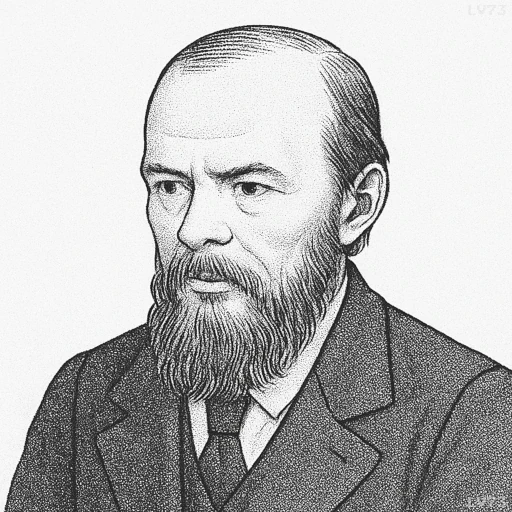“The cleverest of all, in my opinion, is the man who calls himself a fool at least once a month.”

- November 11, 1821 – February 9, 1881
- Born in the Russian Empire
- Novelist, philosopher
table of contents
Quote
“The cleverest of all, in my opinion, is the man who calls himself a fool at least once a month.”
Explanation
In this quote, Dostoevsky underscores the value of humility and self-awareness. To call oneself a “fool” is not necessarily an admission of ignorance, but rather an acknowledgment of one’s fallibility and the inherent limitations of human understanding. The “clever” man, in Dostoevsky’s view, is not the one who prides himself on intellectual superiority, but the one who recognizes that, despite his knowledge or abilities, there is always room for growth and learning. This humility allows for a more open and honest reflection on one’s own actions, beliefs, and decisions, and it reflects the wisdom of being aware of one’s own ignorance. In a world where many people become rigid in their self-assurance, admitting one’s mistakes or limitations is a sign of a truly mature and reflective individual.
Dostoevsky often portrayed characters who were caught in the tension between pride and humility. For example, characters like Raskolnikov in Crime and Punishment are consumed by their own sense of intellectual superiority, yet their failure to acknowledge their weaknesses leads to their downfall. The act of calling oneself a fool is an antidote to this pride—it reflects the courage to confront one’s own imperfections and, by extension, the possibility of personal transformation. Dostoevsky’s notion of “cleverness” is tied not to the accumulation of facts or power, but to the ability to humble oneself and embrace the uncertainty of the human experience.
In modern life, this quote serves as a reminder to approach life with a sense of openness and vulnerability, qualities that are often undervalued in a society that celebrates certainty, confidence, and success. Calling oneself a “fool” is a practice of self-reflection, offering an opportunity to check one’s ego and remain grounded in the face of the complex and ever-changing world. Whether in personal growth, professional development, or relationships, the ability to admit that we don’t have all the answers, and to recognize our own flaws, is a hallmark of true intelligence and maturity. By regularly confronting our own limitations, we open ourselves to greater wisdom and a deeper understanding of others.
Would you like to share your impressions or related stories about this quote in the comments section?


